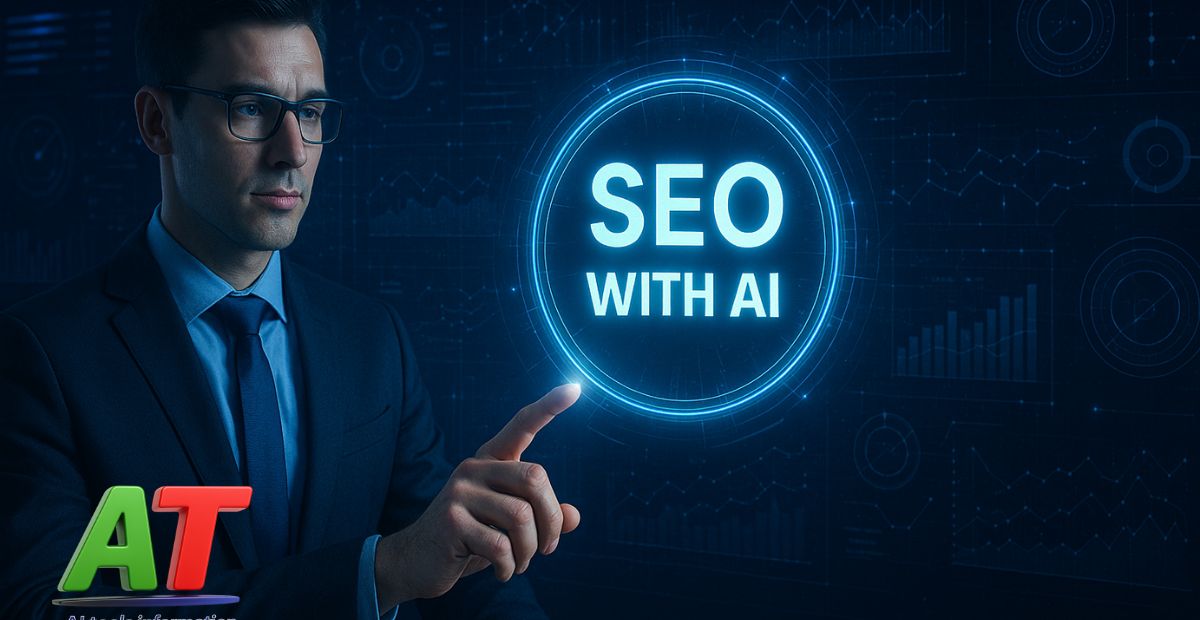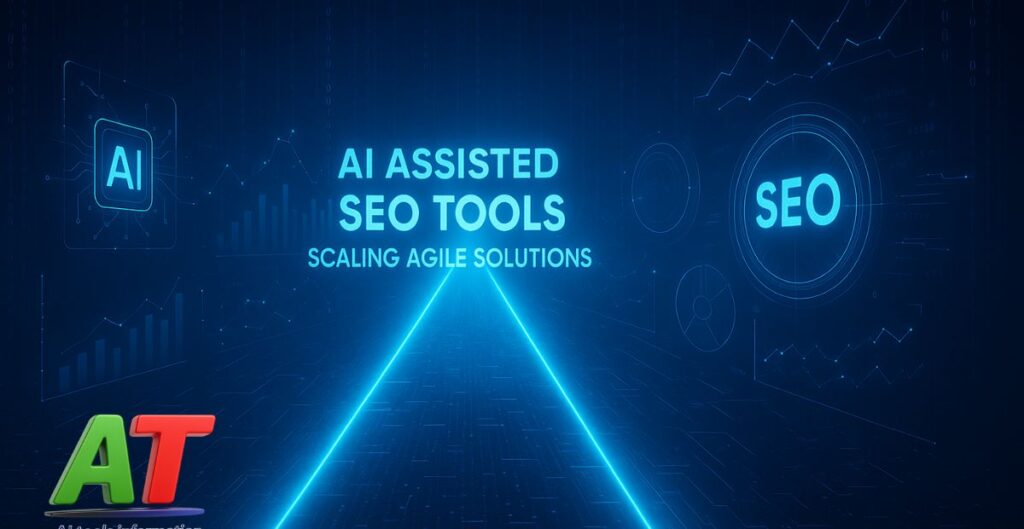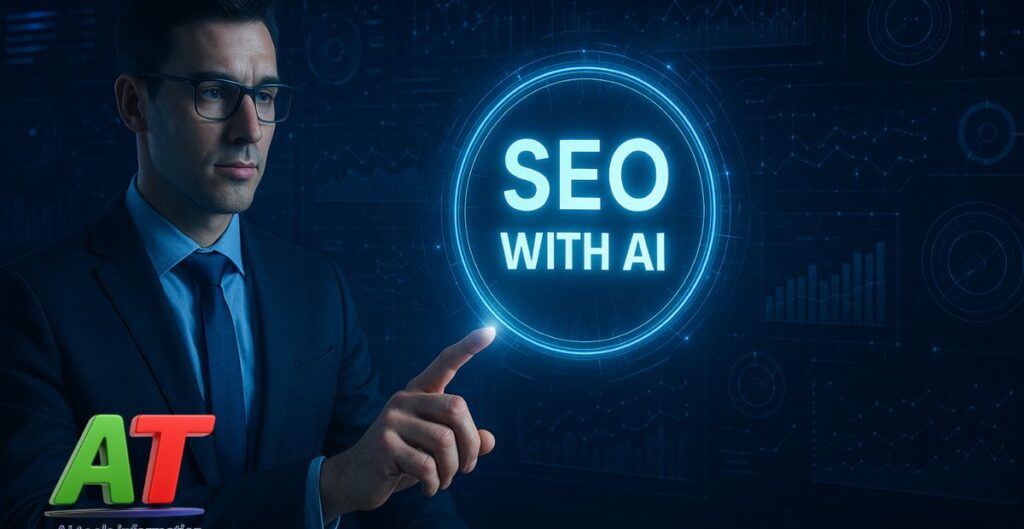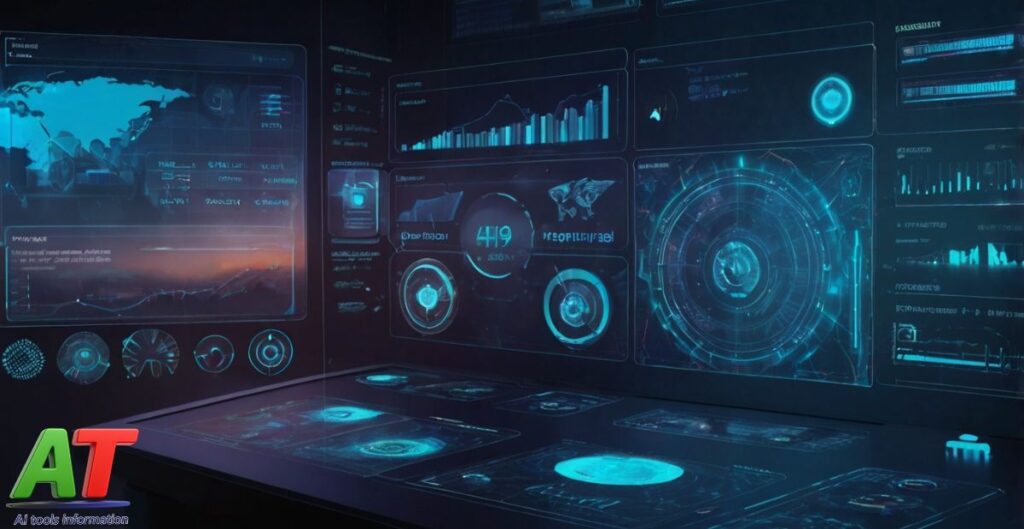for Elosive Gro
Discover how AI SEO tools to scale agile solutions to boost rankings, automate strategies, and drive faster results—maximize growth with next-gen optimization.

Introduction
Marketing in 2025 isn’t what it was five years ago. The overlap of AI, Agile, and SEO is transforming how brands connect with audiences.
AI SEO tools are becoming indispensable. They automate research, content optimization, technical fixes, and link building. Meanwhile, scale agile solutions help businesses execute SEO in iterative cycles, adapting fast to search engine changes.
In this article, you’ll discover:
- Why AI + Agile is the smartest path forward for U.S. brands.
- How to implement advanced optimizations beyond standard tactics.
- A full sprint‑based workflow built for high performance.
- Real ROI metrics, risk management tips, and future‑proofing strategies.
Let’s get started—the future of SEO awaits.
The Evolving Search Landscape
From SEO to AEO & GEO
The traditional Search Engine Optimization (SEO) model—dominant keyword-focused strategies—is evolving into:
- Answer Engine Optimization (AEO): Crafting content designed to appear in AI-generated answer boxes.
- Generative Engine Optimization (GEO): Optimizing structured data and metadata so that LLMs use your content to generate conversational outputs.
Top SEO thought leaders emphasize this shift: brands must tailor content not just to users—but to AI “answer engines” as well.
Why It Matters in 2025–26
Recent industry data shows dramatic change:
- Google’s AI Overviews are now shown in ~42% of SERPs, up ~9% since Q3 2024, with organic CTR falling from 1.41% to 0.64% for informational queries (greenlanemarketing.com, wsj.com, searchengineland.com, searchenginejournal.com).
- For major news sites, CTR dropped 7.3% to 2.6%—a ~60% reduction (nypost.com).
This decline in clicks underscores the need to adapt content strategies—not just chase rankings.
Key AI SEO Tools: Roles & U.S. Use Cases
Here’s a breakdown of top AI-powered SEO tools by task category:
1. Keyword & Topic Intelligence
- SEMrush, Ahrefs: Use AI clustering to detect long-tail intent.
- Use case: A SaaS business in Austin used Ahrefs’ topic modeling to double organic trial sign-ups within two quarters.
2. Content Briefing & Optimization
- SurferSEO, Clearscope, Frase: Employ semantic NLP to highlight missing topics.
- Use case: A New York-based agency improved their average content score by 18%, increasing featured snippets by 70%.
3. AI Writing Assistants
- Jasper, Copy.ai: Generate first-draft content. Perfect for ideation.
- Teams edit extensively to maintain quality—human oversight secures brand voice.
4. Technical SEO Automation
- Screaming Frog (with Alli AI): Automates site audits—detects broken links, redirects, schema issues.
- A U.S. e-commerce site slashed technical debt by 60% within a sprint.
5. Backlink Intelligence
- Ahrefs, Postaga: Automate outreach and identify high-authority link targets.
- Example: A Chicago B2B company used Postaga to secure 12 high-quality links in one month.
6. Behavior Analytics
- Plerdy: Provides heatmaps and dwell-time data aligned to SEO performance.
- Heatmap insights helped refine USPs in landing pages, boosting dwell time by 22%.
7. Enterprise Suites
- BrightEdge, MarketMuse, NeuralText: End-to-end AI support from planning to optimization.
- used by Bloomberg & major tech firms for large-scale content coherence.
Integrating AI SEO Tools into Scaled Agile Frameworks
Why Combine Agile + AI?
- Iterative sprints let you adapt as AI-overview SERPs evolve.
- Rapid feedback loops reduce risk and improve content quality faster.
- Cross-functional synergy ensures SEO, development, and writing teams stay aligned.
Human‑in‑the‑Loop Design
Automation is powerful—but human editors:
- Add nuance and brand voice.
- Optimize for AEO/GEO context.
- Validate facts and trust signals.
LLM Agents in Agile Workflows
Integrate GPT-powered agents to assist in:
- Sprint planning prompts.
- Writing user stories.
- Identifying content gaps based on query intent.
Teams in Silicon Valley are now running “AI sprint planners” that generate SEO tasks directly from analytics.
Advanced Strategies: GEO & AEO Implementation
GEO Fundamentals
- Publish
llms.txtto guide AI-crawlers. - Use structured metadata (JSON-LD) with citation anchors.
- Provide in-depth outbound links to authoritative sources.
AEO Best Practices
- Build succinct FAQs with schema.
- Write multi-part answers clearly addressing user questions.
- Ensure content is snippet-ready—target bullet list or table formats.
Testing AI Traction
- Track when your content appears in AI Overviews or summaries.
- Compare traffic changes before/after inclusion.
- Aim for a 10–25% traffic lift by AI surfacing.
Process Blueprint: From Sprint to SERP
| Sprint Phase | Key Activities |
|---|---|
| Sprint Planning | Define SEO/AEO/GEO goals. Use AI tools to identify intent clusters. |
| Tool Kickoff | Generate keyword clusters, content briefs automation. |
| Draft & Optimize | Use AI assistant for drafts; human editors refine. |
| Technical Audit | Run automated audits; fix schema, links, tags. |
| Publish & Monitor | Measure SERP positions, CTR, heatmaps. |
| Retrospective | Analyze wins/losses; use findings to feed next sprint. |
Metrics & ROI: Proving Value
Soft Metrics
- AI overview visibility.
- Featured snippet rankings.
- Dwell time and engagement.
Hard Metrics
- Organic traffic lift.
- Conversion rate per content.
- Revenue per content dollar.
Dashboards
Combine GA4, Search Console, and AI analytics. Pull them into a centralized dashboard for executive-level KPI tracking.
Risks & How to Mitigate Them
- Algorithm Shifts: Stay agile. Regularly test new formats and tools.
- Overreliance on AI: Keep human editing. Create brand voice guidelines.
- Privacy & Compliance: Plan for CCPA/GDPR—document data sources and user insight usage.
- Data Silos: Integrate all tools (analytics, content, outreach) via API consolidations and dashboards.
Future‑Proofing: What Comes Next

- Voice & multimodal search: Optimize for natural, long-form queries and images.
- Chatbot platforms: Prepare content for placement in branded AI summaries.
- Enterprise AI knowledge bases: Build structured content libraries with AI-trained responses.
Research indicates over 80% of U.S. users regularly prefer AI-generated answers on branded searches.
AI Ethics & Trust Signals
Maintain trust with:
- Transparent author bios.
- Frequent content updates.
- Robust citation and editorial protocols.
Conclusion & Action Plan
- Recap: Combining AI SEO tools, Agile SEO strategies, and advanced AEO/GEO unlocks scalable SEO success in 2025.
- Next Steps:
- Run a one-week AI+Agile pilot sprint.
- Define tool roles and human oversight.
- Track both soft and hard metrics.
- Invitation: Share your results—what worked, what didn’t, and how you plan to iterate next.
By infusing your process with AI content optimization tools, automated SEO workflows, data-driven SEO tools, and machine learning for SEO, you’ll stay ahead of shifting algorithms, outperform competitors, and future-proof your organic search presence.
📣 Ready to supercharge your strategy with real-time SEO optimization and predictive SEO analytics? Let’s get started.
FAQS
1. What does it mean when AI SEO tools scale agile solutions?
Answer:
It means AI-powered SEO tools help make agile marketing strategies more effective and scalable. They automate tasks like keyword research, content optimization, and performance tracking, allowing teams to move faster, adapt quickly, and get better results with less manual effort.
2. How do AI SEO tools improve the speed of agile workflows?
Answer:
AI SEO tools save time by automating repetitive tasks like technical audits, competitor analysis, and on-page SEO fixes. This lets agile teams focus on strategy and testing, speeding up sprints and delivering faster growth.
3. Can small businesses benefit from using AI SEO tools with agile strategies?
Answer:
Yes! Small businesses can use AI SEO tools to compete with larger brands by working smarter, not harder. These tools make it easier to adapt SEO campaigns quickly, track performance, and scale efforts without needing a big team.
4. What are the best features to look for in AI SEO tools for agile marketing?
Answer:
Look for tools with real-time analytics, automated keyword suggestions, content optimization, SEO audit capabilities, and easy integration with your existing workflows. These features support agile marketing by helping you move fast and make data-driven decisions.
5. Do AI SEO tools replace human SEO experts in agile strategies?
Answer:
No, they don’t replace humans—they empower them. AI tools handle the heavy lifting and data crunching, while SEO experts focus on creativity, strategy, and decision-making. It’s a powerful partnership that boosts productivity and results.
6 AI SEO Tools to Scale Agile Solutions for Elosive Growth?
AI SEO tools scale agile solutions by automating optimization tasks and enabling quick strategy shifts. This drives faster, more sustainable growth in competitive markets.



CreatBot D600 Pro 2 Industrial 3D Printer is a advanced industrial 3D printer designed for businesses requiring precision, reliability, and flexibility in 3D printing devices. As part of the D600 series, it incorporates a large build volume, advanced dual extrusion technology, and high-performance features suitable for industrial-scale applications and varied materials.
CreatBot D600 Series Overview
The CreatBot D600 Series and D600 Pro establish benchmarks for large-scale 3D printers solutions. With a build volume of 600 ? 600 ? 600 mm, these professional large format 3D printers cater to a broad spectrum of industrial 3D printing demands, from big model prototyping to end-use production. The D600 Pro lineup and the latest D600 Pro 2 introduce further enhancements in performance and material compatibility.
Key Features and Advantages
Industrial-Grade Large Build Volume
Build size: 600 ? 600 ? 600 mm
Ideal for large-scale 3D printer projects and industrial 3D printing
Supports technical materials and intricate models
Dual Extrusion and High-Heat Printing
4th generation 1.75mm dual extruders and hotends for multi-material printing
Right and left-side extruder design for flexible printing
Supports high performance 3D materials, including PLA filament, nylon, carbon fiber, and more
Maximum extruder temperature: up to 420°C (high-heat)
Heated build chamber for premium applications
Accuracy, Speed & Dependability
Professional 3d print quality with accurate layer resolution
Advanced motion system for fast printing and robust performance
Consistent print speed up to 120 mm/s
Reliable operation for continuous industrial use
Supported Materials and Filaments
Wide Filament Compatibility
Works with a broad spectrum of filament: PLA, ABS, PC, PETG, PVA, nylon, carbon-fiber, and more
Designed for technical materials and functional prototyping
Advanced dual extrusion system enables multi-material and soluble support printing
Applications: From Prototyping to Production
The CreatBot D600 Pro 2 and D600 Pro serve a diverse set of applications:
Rapid prototyping and large format 3D print models
Functional parts for automotive, aerospace, and engineering
Tooling, jigs, and fixtures for industrial production
Art, architecture, and creative projects requiring large-scale industrial 3d printing
Specs
Models: CreatBot D600 Pro 2, D600 Pro, D600
Build size: 600 ? 600 ? 600 mm
Extruders: Dual extruder, 4th generation 1.75mm dual extruders and hotends
Max nozzle temperature: 420°C
Bed temperature: up to 100°C
Filament size: 1.75 mm
Layer resolution: 0.05 – 0.3 mm
Supported filament: PLA, ABS, PC, PETG, PVA, nylon, carbon fiber, engineering-grade materials
Print speed: up to 120 mm/s
Enclosure: Heated, for improved material properties
Control: Touchscreen interface
Supported file types: STL, OBJ, AMF
Comparison: D600, D600 Pro, and D600 Pro 2
Key Differences
D600: Entry-level industrial large scale 3d printer for basic applications
D600 Pro: Enhanced with heated chamber, auto bed leveling, and wider material support
D600 Pro 2 (pro version): Adds higher print speed, improved reliability, and HS (high speed) configuration
Other CreatBot Models
CreatBot D1000 HS for even larger build volumes
CreatBot 3D printer includes industrial and professional 3d printer solutions
Frequently Asked Questions (FAQ)
Compatible Materials for CreatBot D600 Pro 2
The CreatBot D600 Pro 2 is compatible with a wide range of filament including PLA, ABS, PETG, PC, nylon, carbon fiber, and other engineering-grade materials.
What is the maximum build volume of the D600 Pro 2?
The printing volume is 600 ? 600 ? 600 mm, supporting large-scale and industrial 3d printing needs.
Does the D600 Pro 2 support dual extruder and high-temperature printing?
Yes, it is equipped with dual extruder technology and reaches up to 420°C for high-temperature printing process.
What differentiates the D600 Pro 2 from the D600 Pro?
The Pro Version offers higher print speed, improved reliability, and the new HS (high speed) option.
Summary
The D600 Pro 2 and the CreatBot D600 Pro industrial professional set the benchmark in the industrial large scale 3d printer category. With exceptional build size, robust dual extruders and hotends, compatibility with engineering-grade materials, and top performance across applications, they empower businesses and engineers to achieve new heights in industrial 3d printing.
build volume
creatbot d600
pla
creatbot d600 pro 2